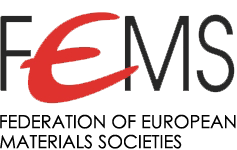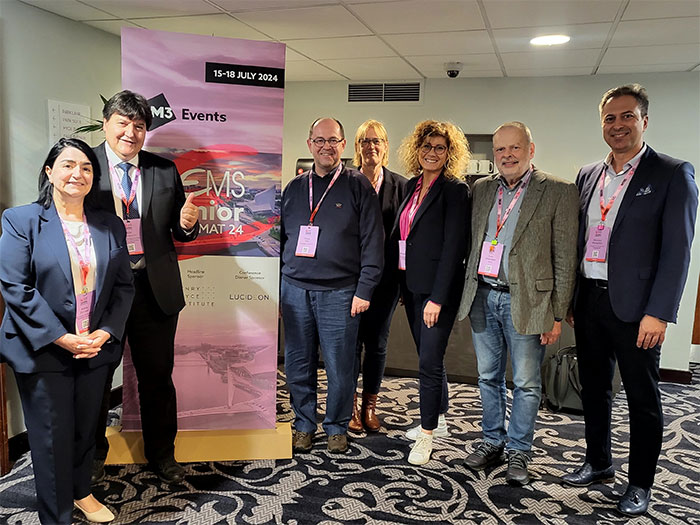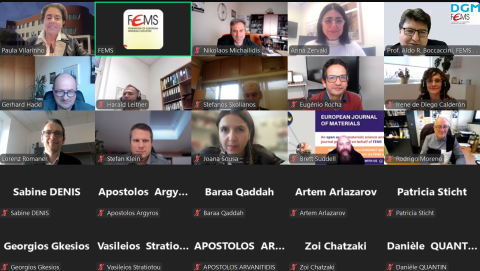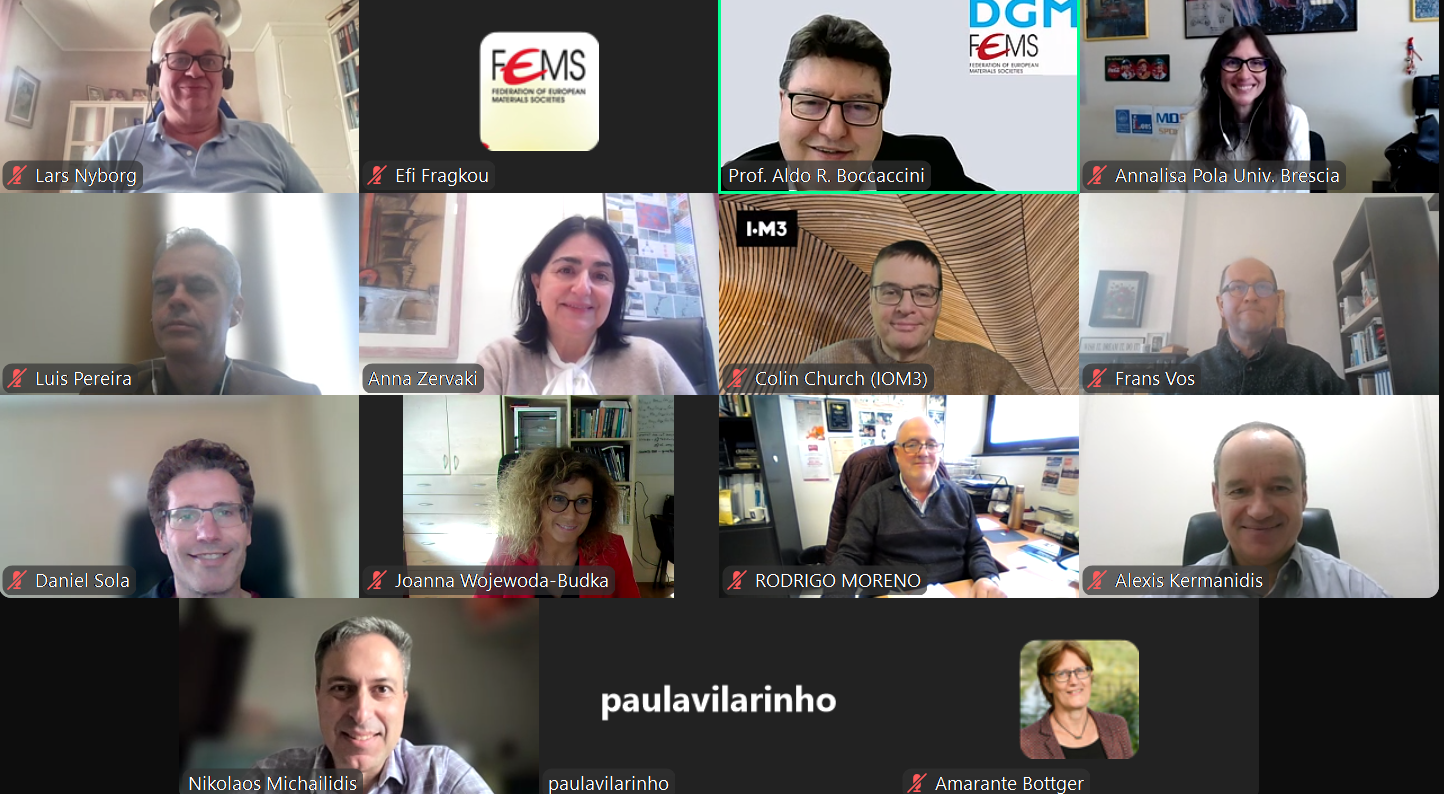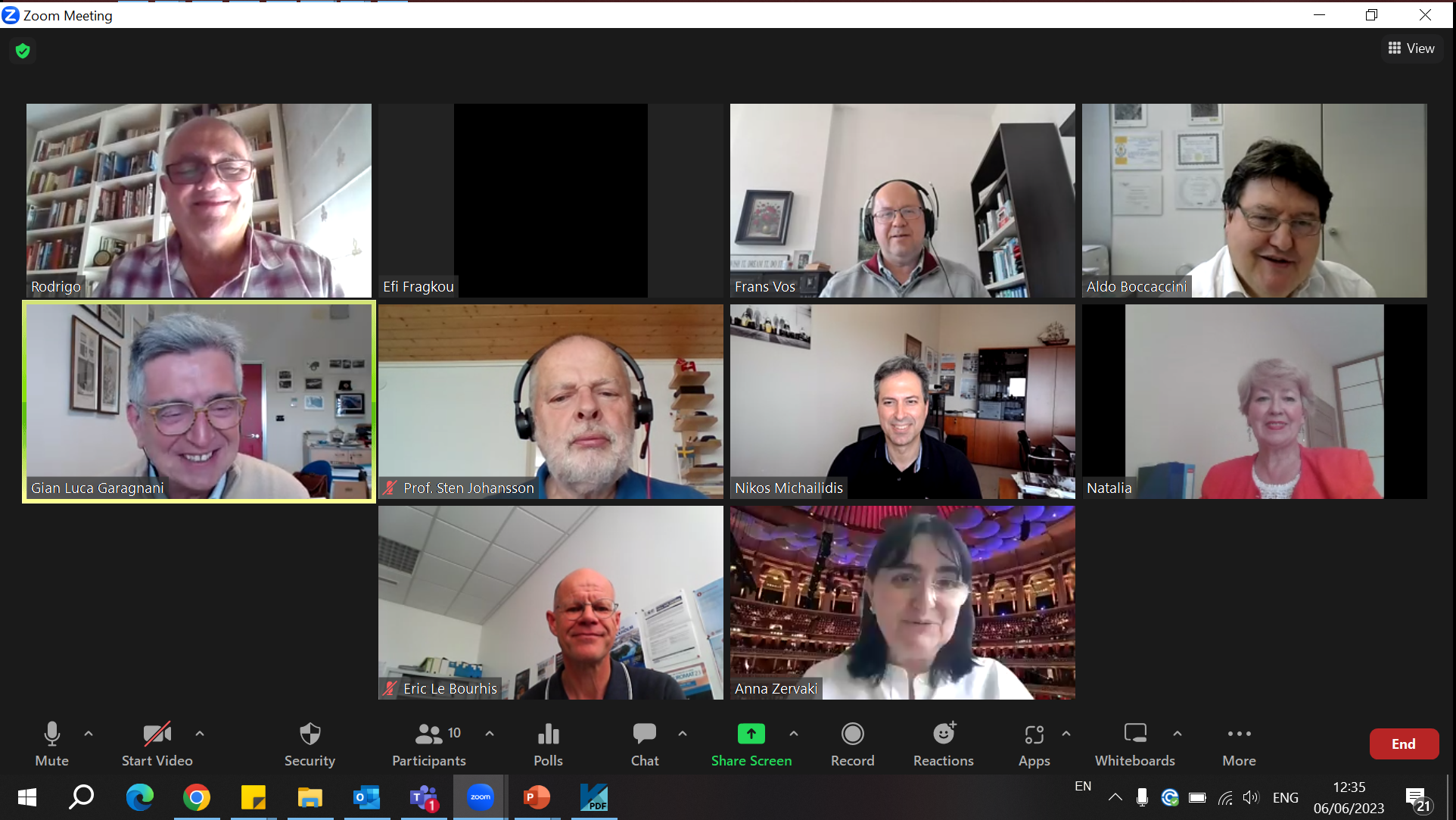About FEMS
Networking for European Materials Scientists and Engineers
FEMS, the Federation of European Materials Societies, is a not-for-profit association of European materials societies and associations covering science and engineering in various fields including metals, polymers, ceramics, composites, glasses, nano and biomaterials in over 20 different countries.
In June 1986, The Institute of Metals in London (IOM), the German Society for Metals (DGM) and the French Society for Metallurgy (SFM) agreed the need for European metals and materials societies to act more in concert and behave in a generally more “European” manner. After a few meetings, a memorandum of understanding to form the Federation of European Materials Societies was signed in January 1987. The first FEMS General Assembly took place in Paris on 11 December 1987, with IOM, SFM and DGM as the three founder members. In the years that followed, membership of FEMS grew steadily, and by 1993 there were fourteen full members in thirteen different countries.
The aims of the association are:
- Promote the wide dissemination of scientific, technical and other knowledge relating to materials.
- To facilitate the communication and exchange of information between its members.
- To co-ordinate the activities of member societies in order to make optimum use of resources.
- To ensure optimum visibility of materials science and engineering in governmental and non–governmental organisations, in the economy and in the academic environment.
- Contribute to developing links and collaboration between RTOs and industry.
The size of the FEMS Member Societies varies enormously ( ranging from 50 to over 10,000 members). The total number of materials scientists and engineers represented by the FEMS Member Societies is approximately 25,000. However, most of the societies have fewer than 500 members and inevitably have limited influence. Perhaps the most important aim of FEMS is to overcome the fragmentation of the materials science and engineering discipline in Europe in terms of countries, specialities and disciplines. In contrast with the USA, where there are relatively few professional materials societies, Europe has over thirty (16 in Germany alone). By strengthening interaction between Materials Scientists and Engineers across Europe, European Materials Societies, and Member Societies and the European Union, FEMS aims to facilitate the dissemination of knowledge and provide the critical mass needed to exert influence on a European scale.
How FEMS achieves its objectives
The Federation is probably best known for its series of FEMS EUROMAT conferences. These have been held in different venues every two years since the first took place in Aachen during 1989 with 800 delegates. Almost all aspects of materials science and engineering were covered in seven major topic areas:
- Functional and Nano Materials
- Biomaterials
- Structural Materials
- Processing
- Characterisation and Modelling
- Applications
- Education
Benefits FEMS provides to its member societies
Every individual belonging to a FEMS Member Society qualifies for a reduced registration fee to attend EUROMAT. The total value of these savings can greatly outweigh the membership fee paid by the society. The member societies can bid to host EUROMAT and are encouraged to participate in the organisation and selection of topics and symposia organisers.
FEMS Member Societies can nominate candidates for election to the FEMS Executive Committee, and vote in the General Assembly. The members can also nominate outstanding people for the prestigious FEMS Awards, which include the European Materials Medal (in solid gold) and the Materials Science and Technology Prize. There is also a FEMS Lecturer Award, which provides visibility to excellent young researchers, and a new FEMS Technical Materials Innovation Award to recognise outstanding materials developments in industry.
Member Societies can use the FEMS website and FEMS News as platforms for information exchange with other societies and to publish job opportunities and student placements. Three years ago, FEMS introduced an annual FEMS Presidents’ Day, giving senior representatives of its Member Societies the opportunity to get together to exchange views and provide feedback to the Federation. More details on benefits.
Key issues FEMS is facing for the future
A major concern is the need to increase further the visibility of Materials Science and Engineering in Europe. To achieve greater influence FEMS is actively recruiting more Member Societies. Also, FEMS is a founder member of the European Materials Forum. This coalition of more than 130 national and European materials organisations has been established to partner the European Parliament and Commission, thus providing a voice for materials to influence politics at the EU level and safeguard the future funding for materials research.
NEWSLETTER
The FEMS newsletter is sent annualy by FEMS to all those who have signed up to receive it.
